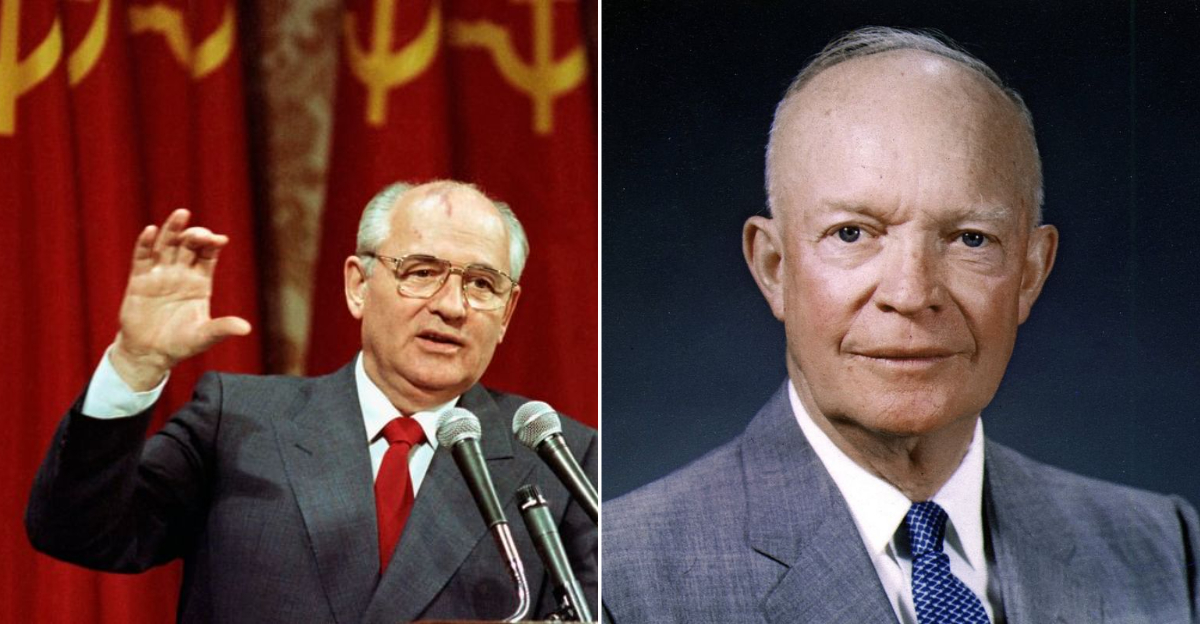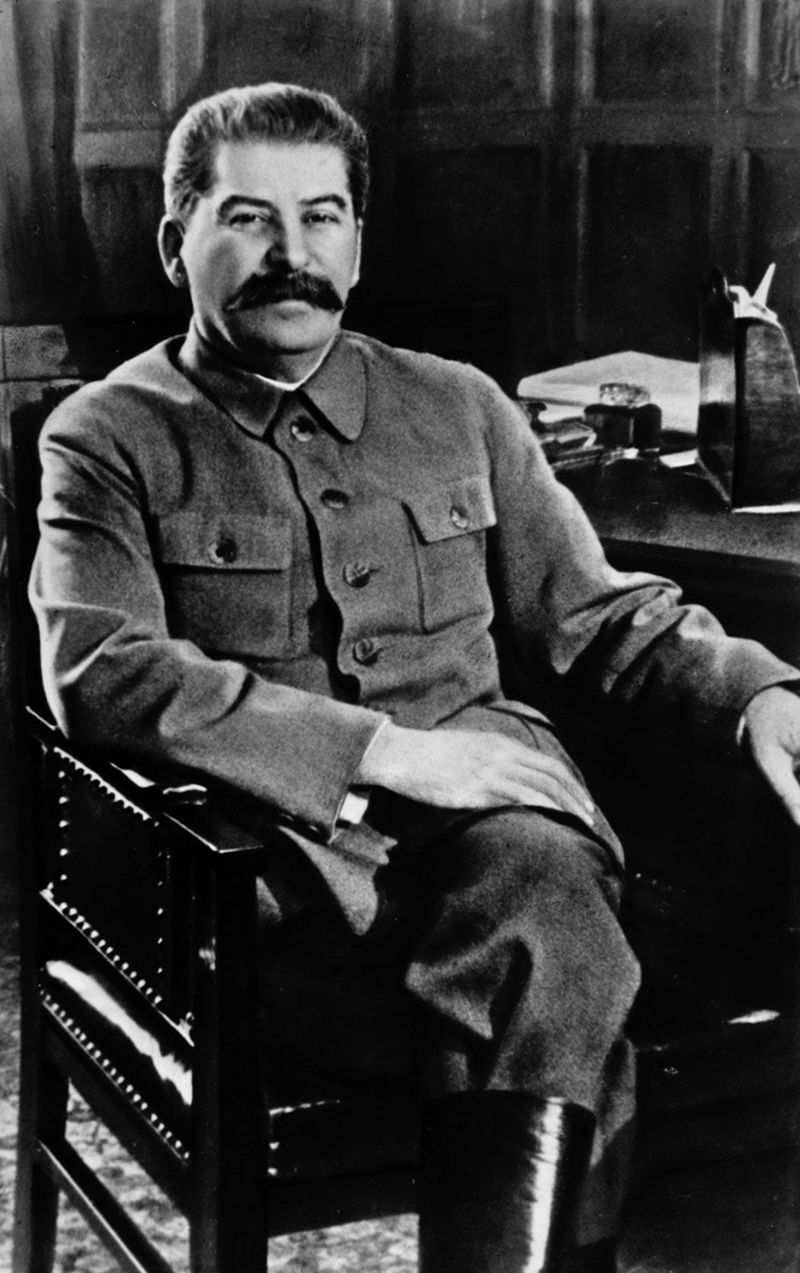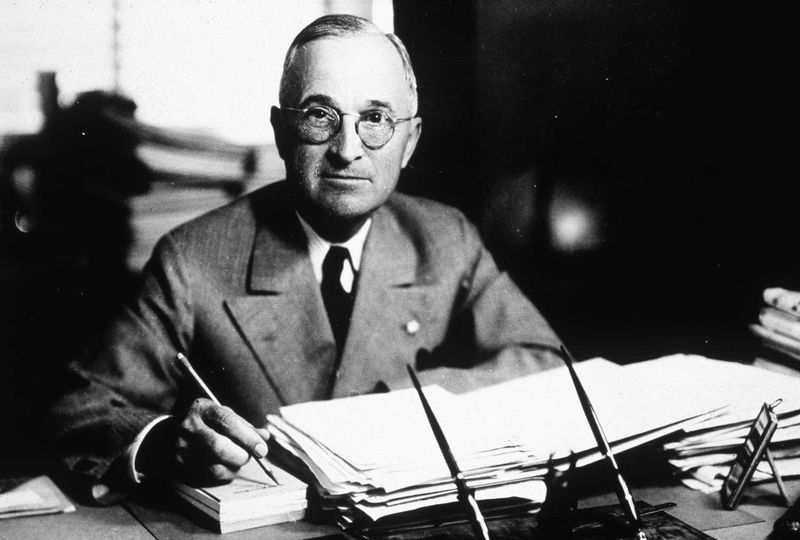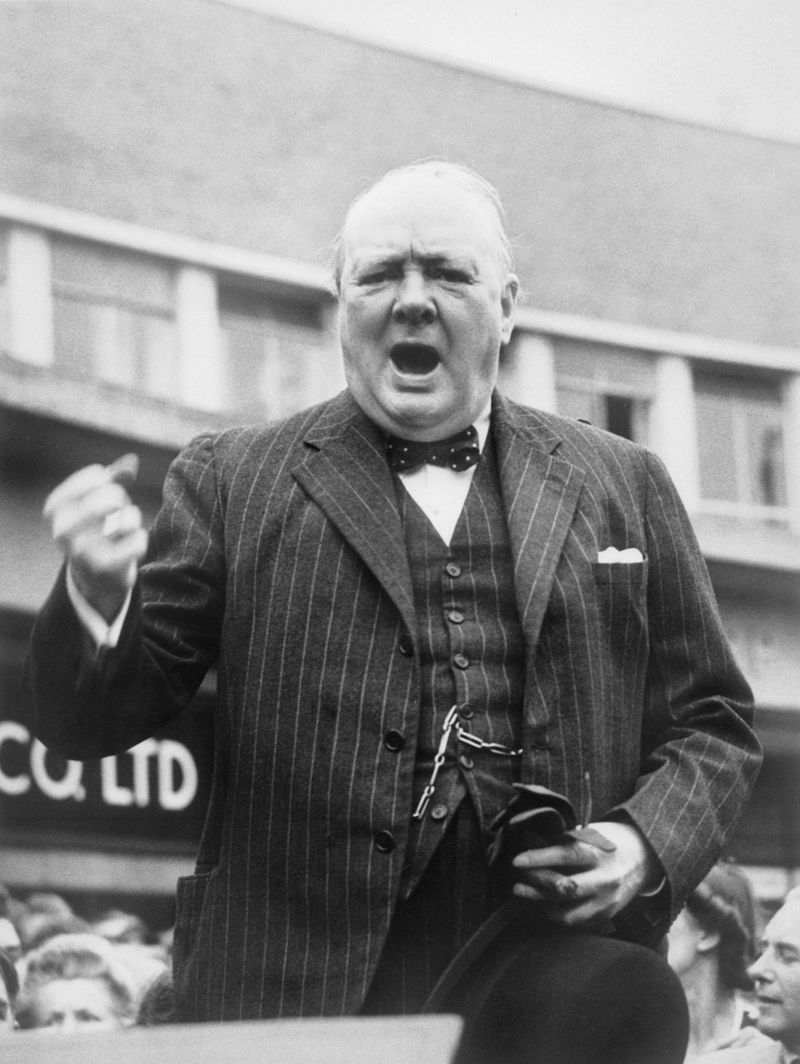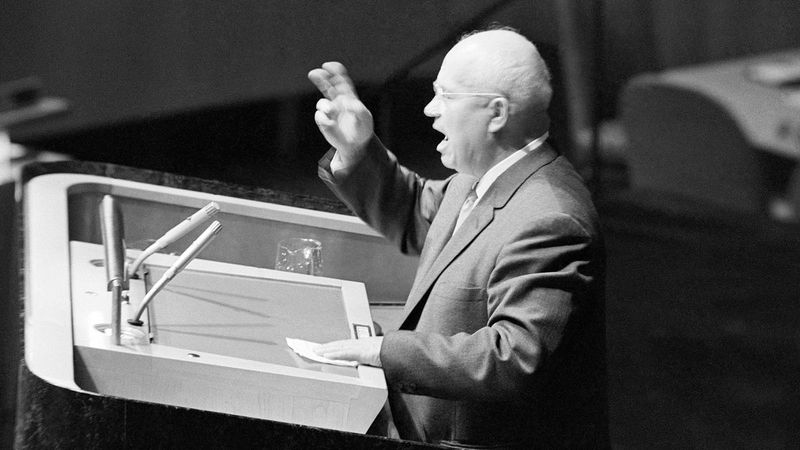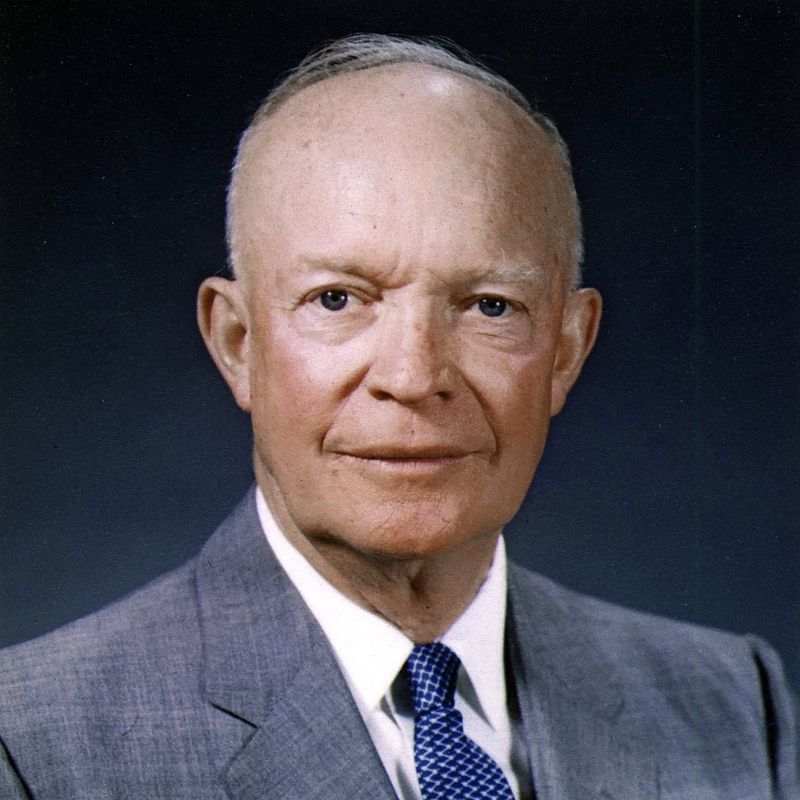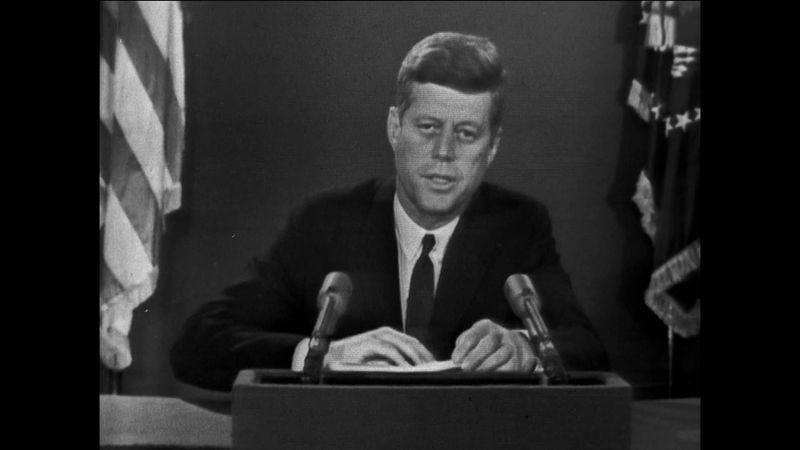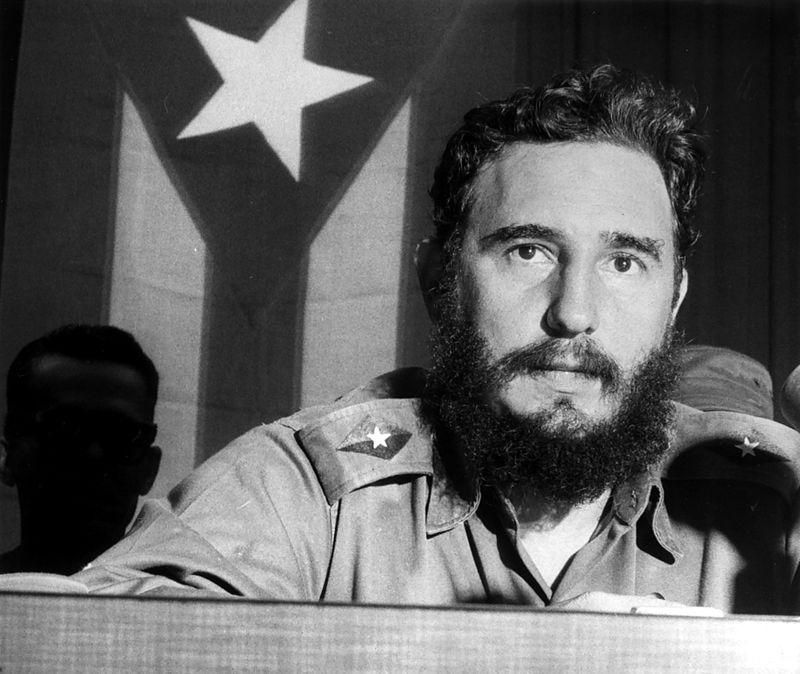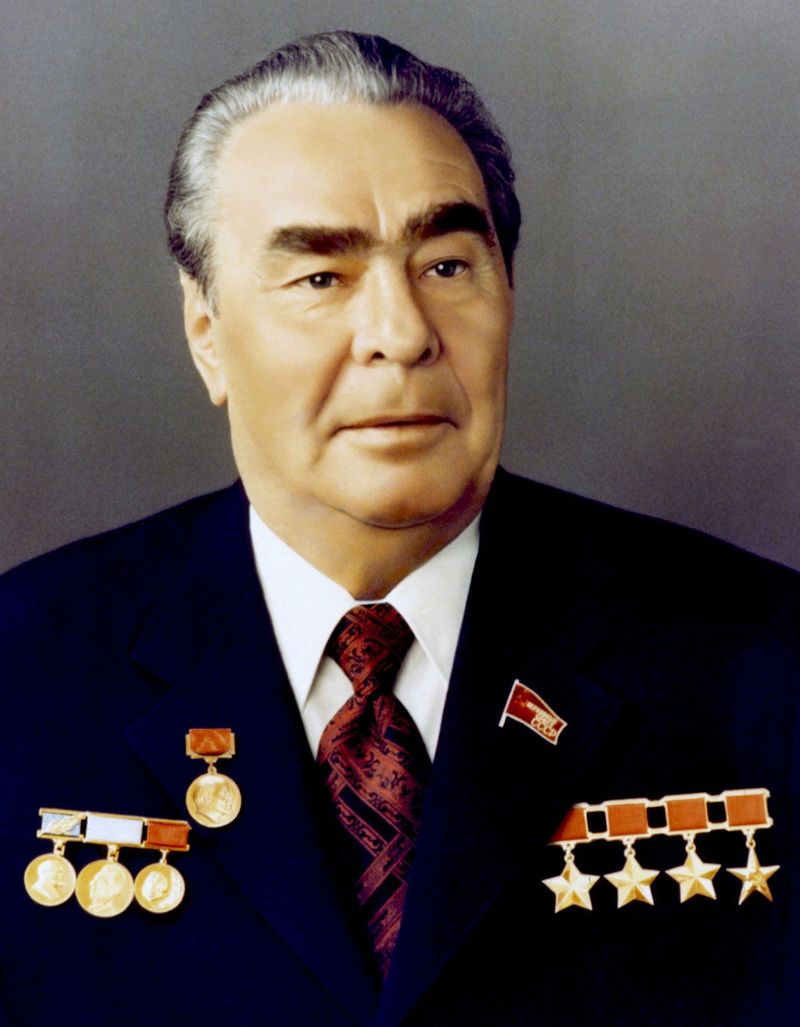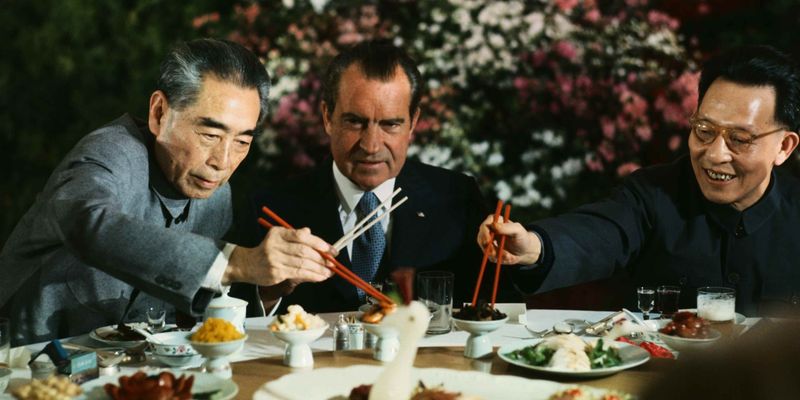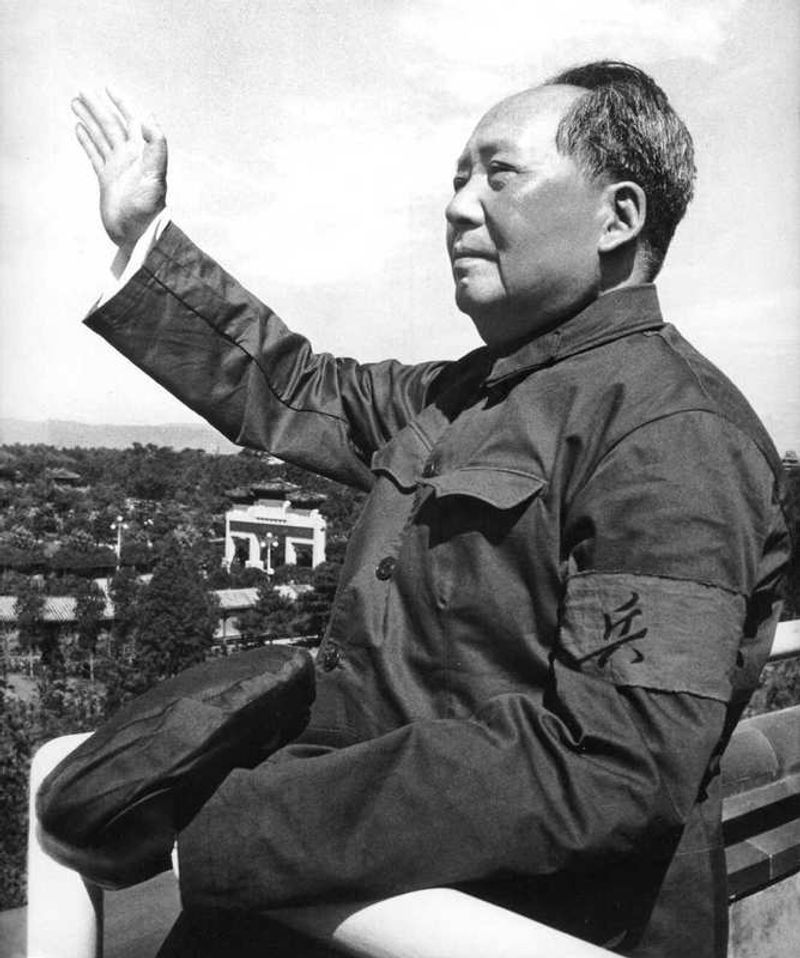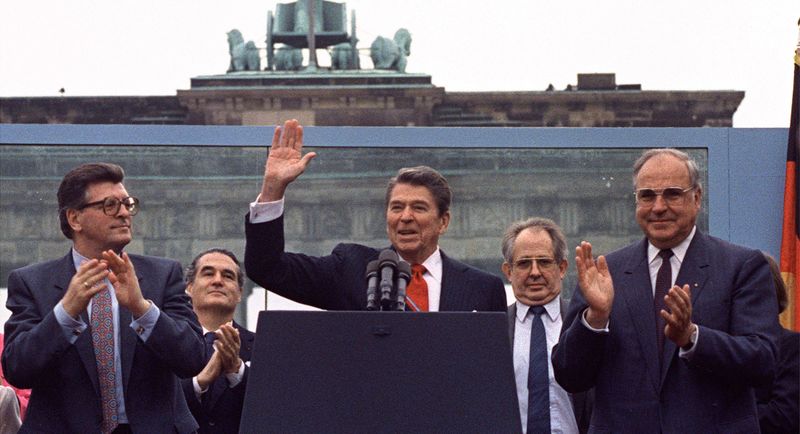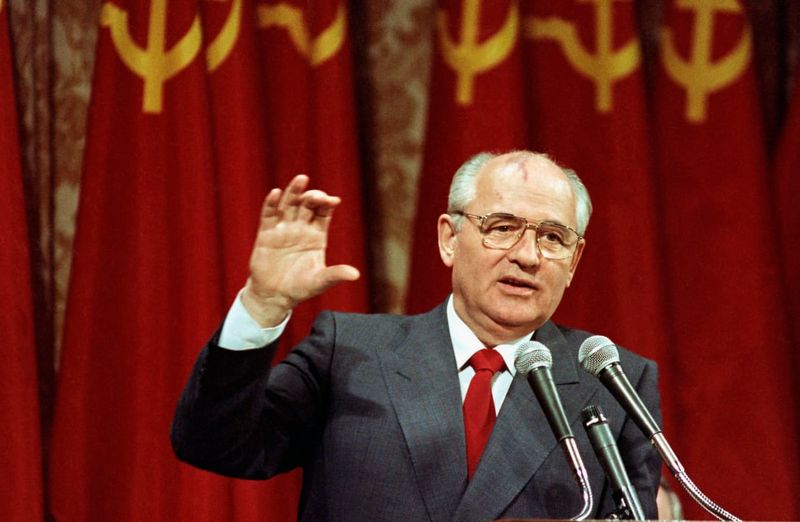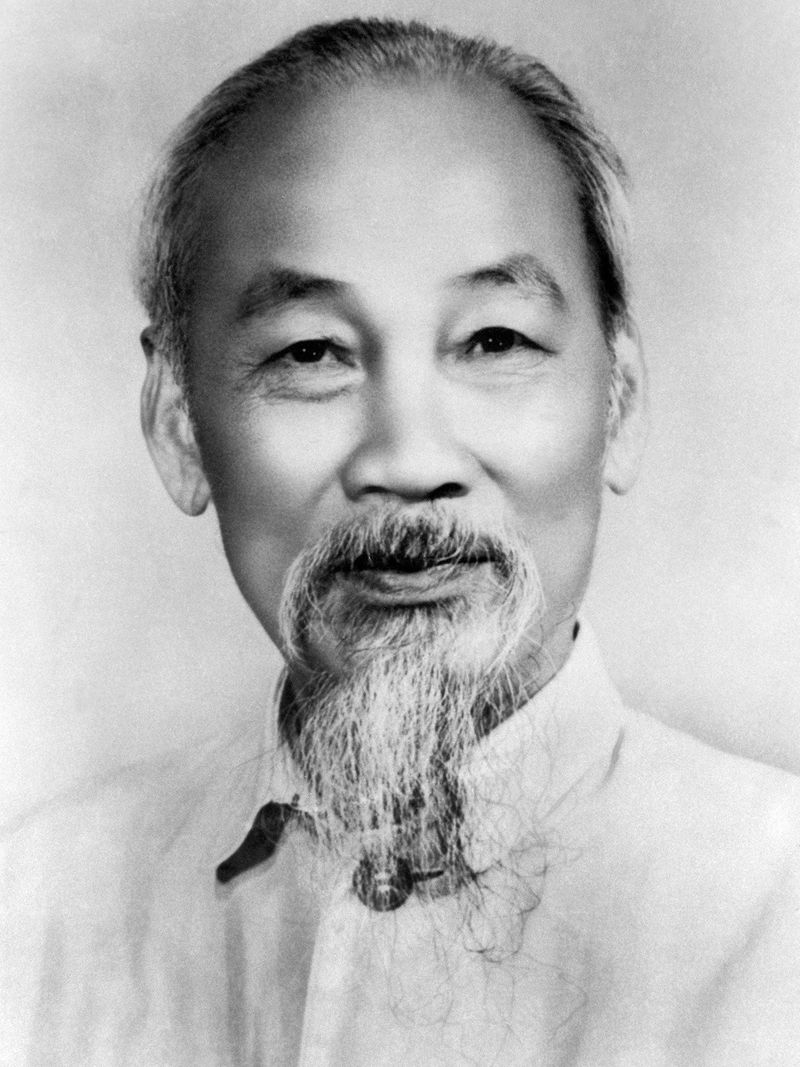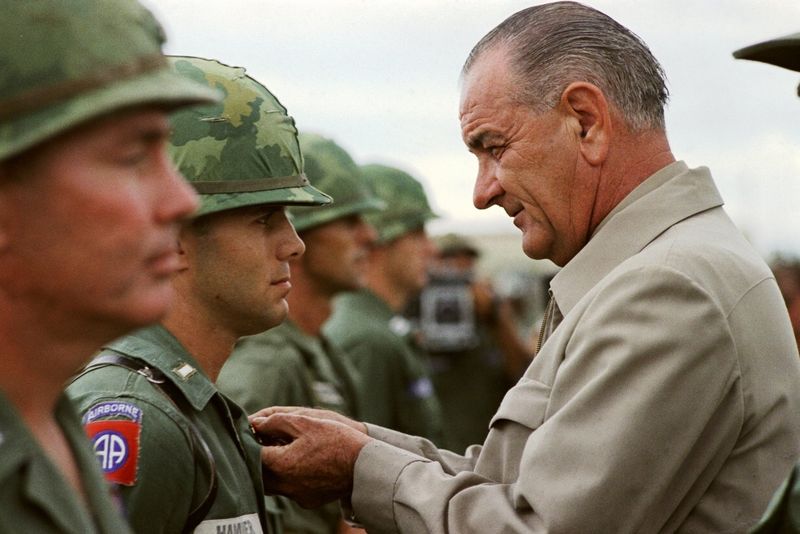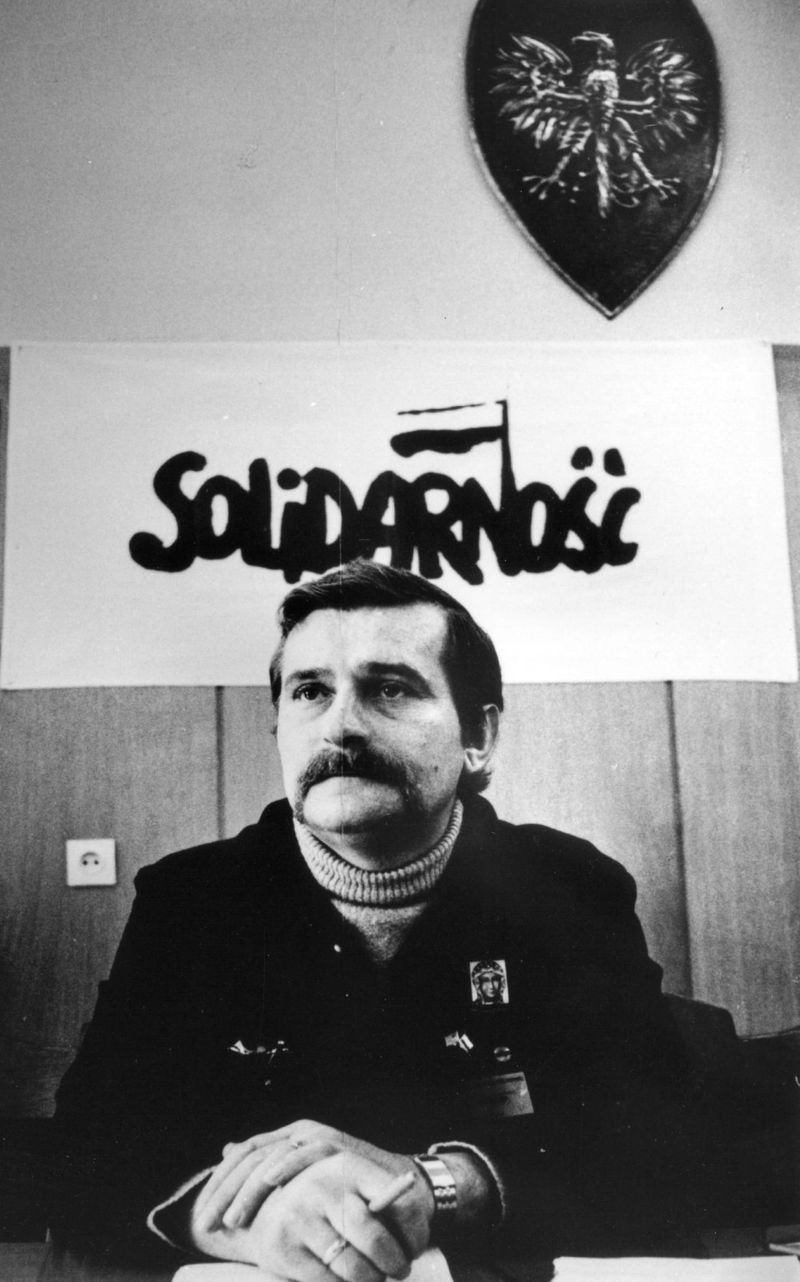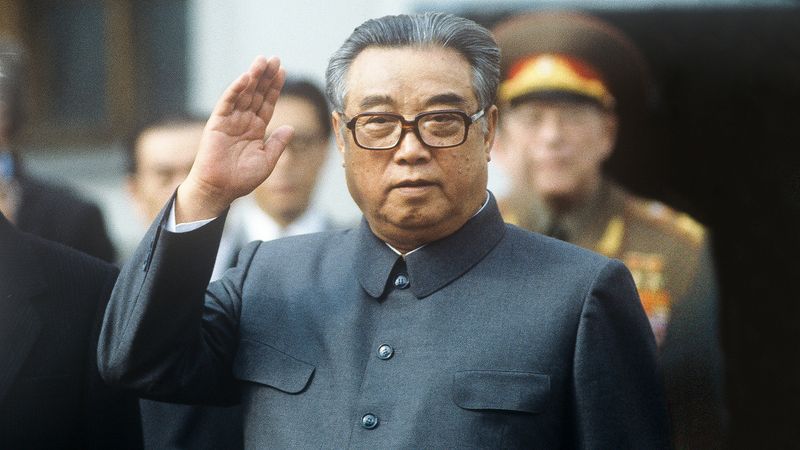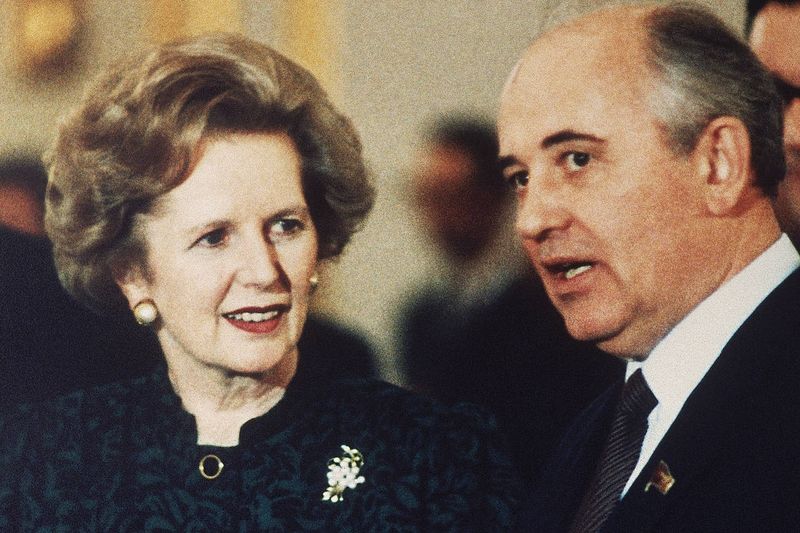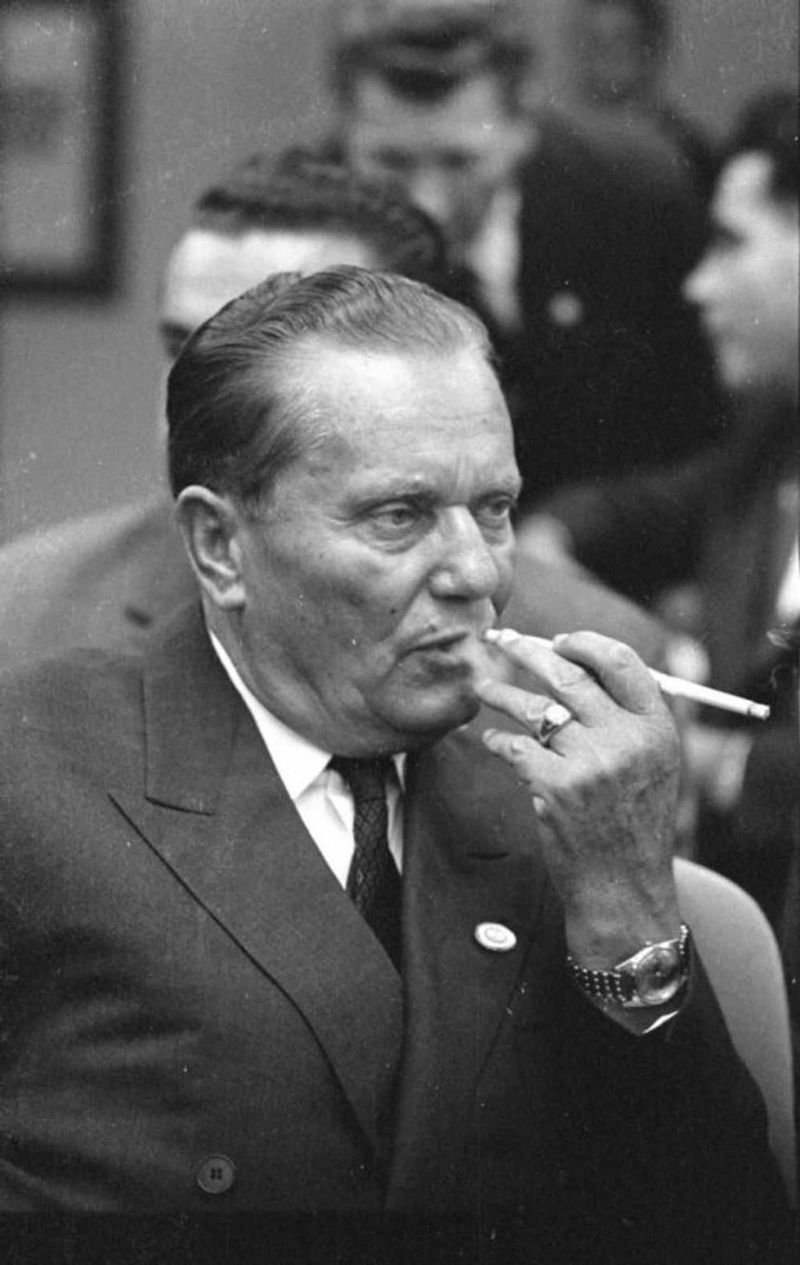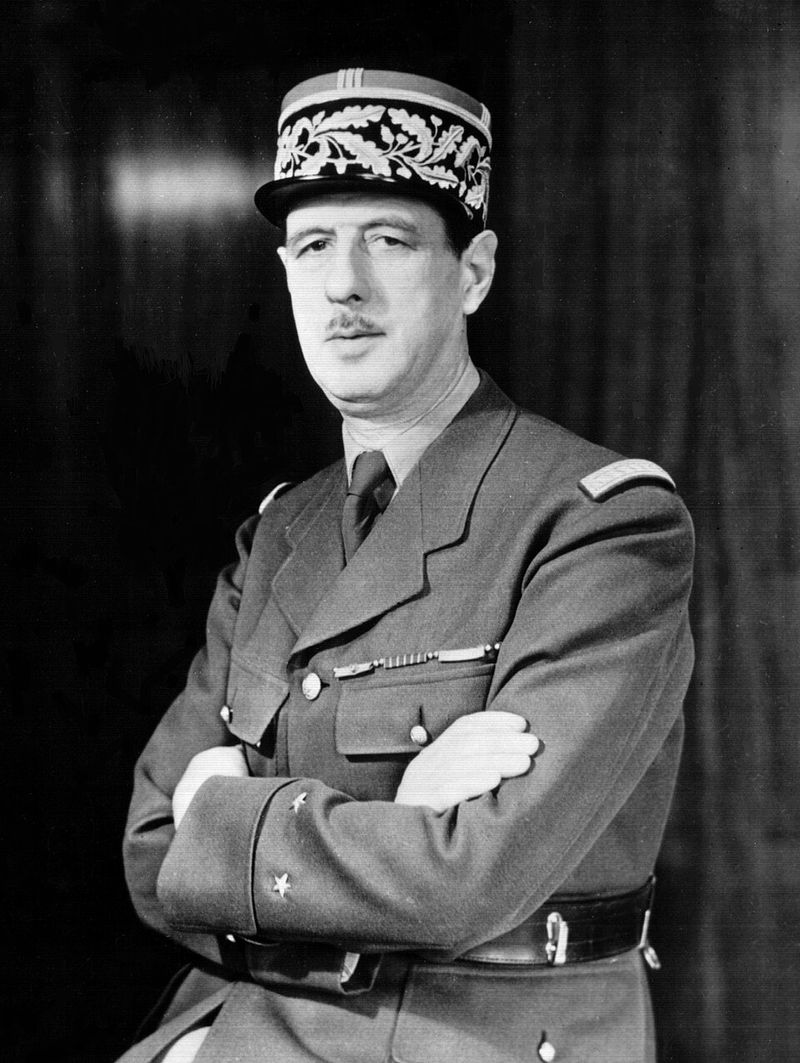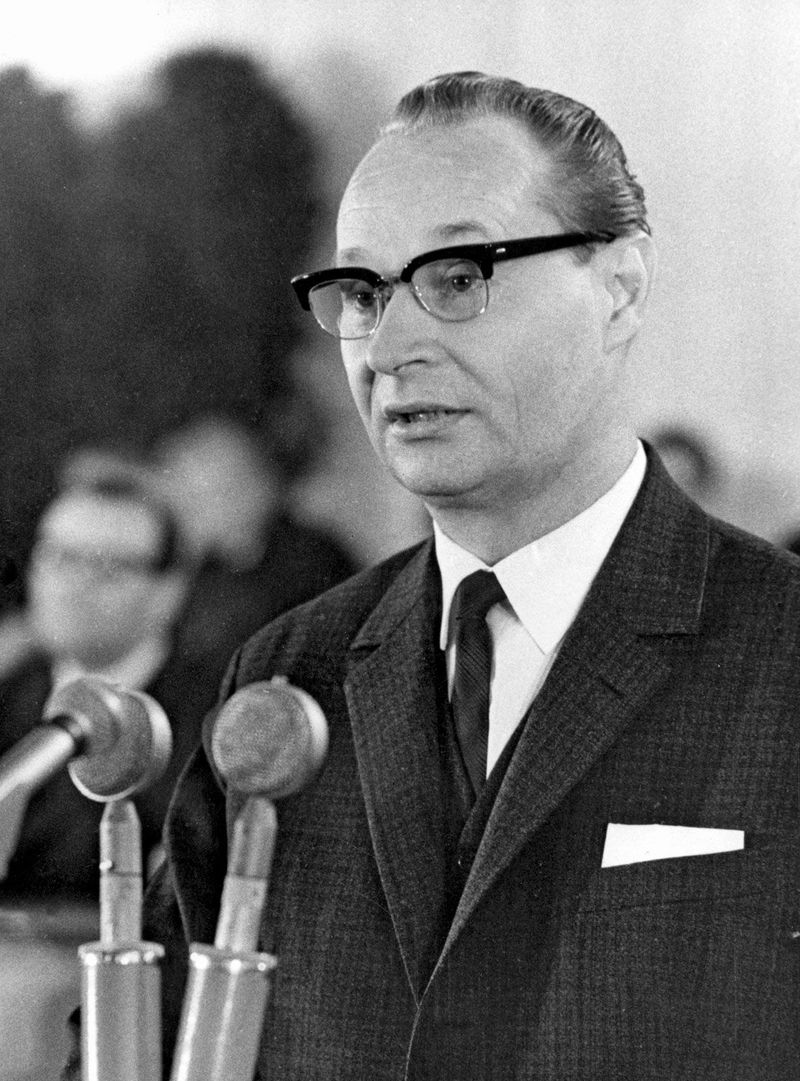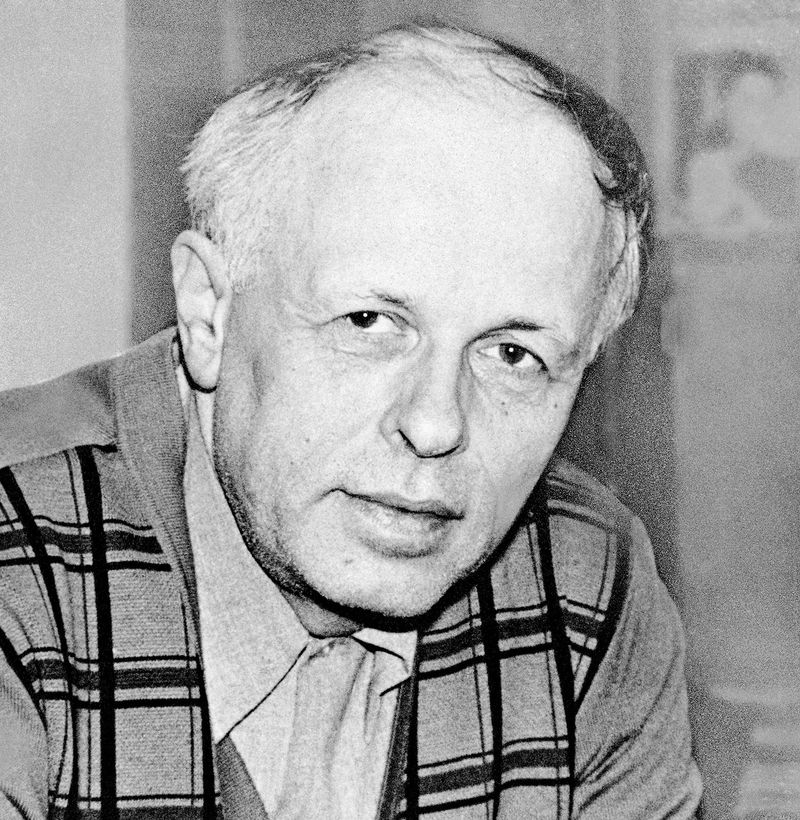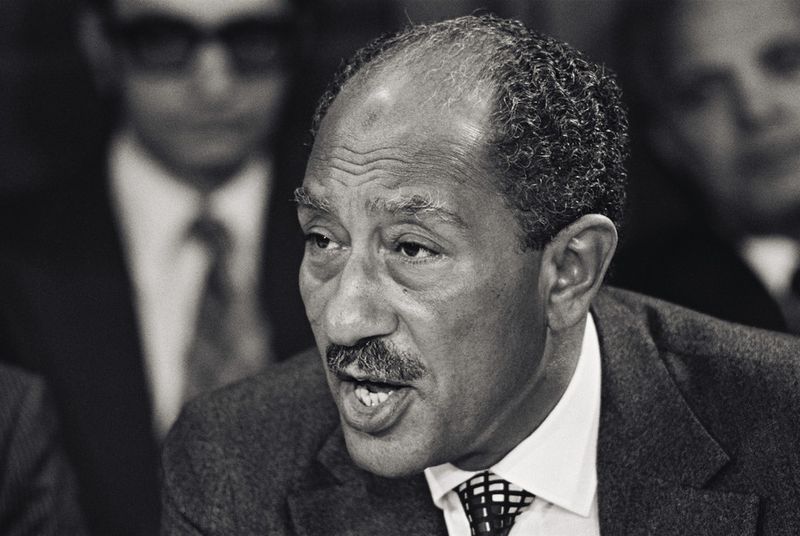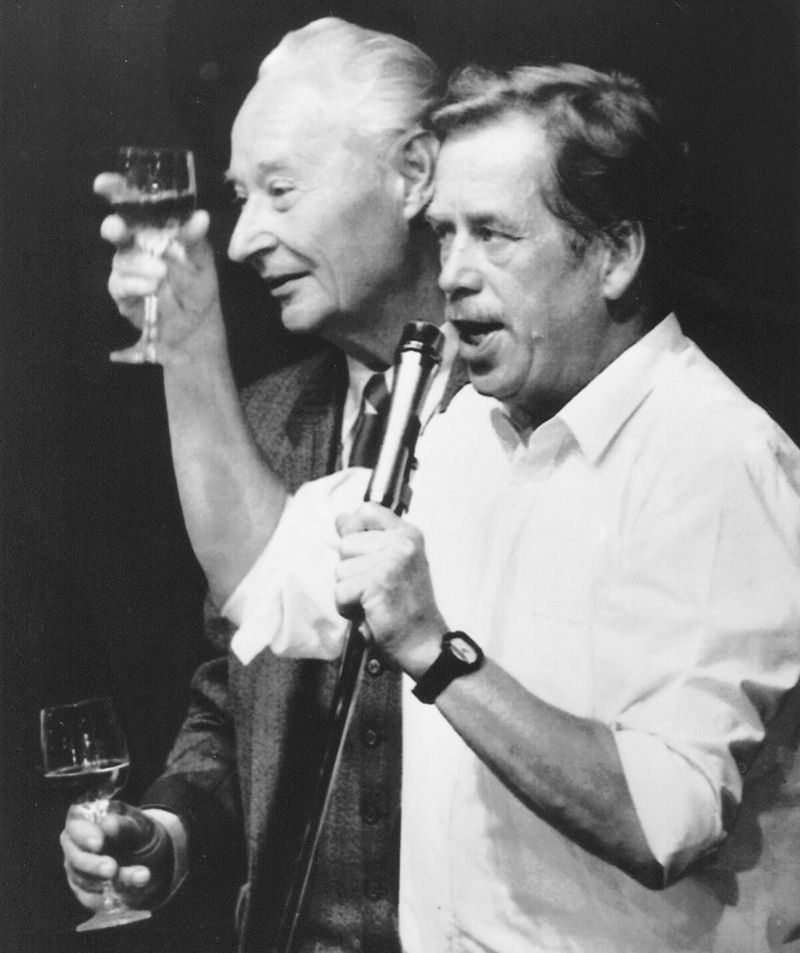From the aftermath of World War II to the fall of the Berlin Wall, the Cold War was more than a clash of ideologies—it was a battle shaped by powerful leaders on both sides of the Iron Curtain. These presidents, premiers, generals, and revolutionaries didn’t just make headlines—they altered the course of world history. Here are 23 Cold War leaders whose decisions left a lasting global impact.
1. Joseph Stalin (USSR)
Joseph Stalin, with a gaze as cold as Siberian winters, laid the iron foundation of post-WWII Soviet dominion over Eastern Europe. His aggressive policies cemented the East-West divide that became the Cold War’s bedrock. Stalin’s reign, marked by paranoia and purges, instilled fear both within and beyond the Iron Curtain.
Did you know? His iron-fisted rule saw the USSR’s transition from a war-ravaged land to a superpower, albeit at a great human cost. Nearly 30 million Soviet citizens died under his regime. For better or worse, Stalin’s legacy is inextricably linked to Cold War history.
2. Harry S. Truman (USA)
Harry S. Truman, with his no-nonsense style and Midwestern grit, steered the U.S. into the Cold War era. His doctrine of containment, aimed at curbing Soviet expansion, laid the groundwork for decades of geopolitical strategy. Truman’s presidency saw pivotal events like the Berlin Airlift, which demonstrated American resolve.
“The buck stops here,” he famously declared, embodying accountability. Truman’s Marshall Plan was a beacon of hope, rebuilding war-torn Europe and reinforcing Western alliances. His decisions forged the post-war world order, making him a central figure in Cold War history.
3. Winston Churchill (UK)
Winston Churchill, ever the orator, coined the term “Iron Curtain” in a speech that signaled the Soviet threat. His sardonic wit and bulldog tenacity rallied the West against communist expansion. Even out of office, Churchill’s voice resonated across the Atlantic, warning of a divided Europe.
A Nobel laureate for literature, he wielded words as weapons. Churchill’s foresight and courage in confronting Stalin’s ambitions were pivotal. His speeches and policies left a legacy that defined Western opposition to Soviet influence. Churchill’s call to arms still echoes in Cold War annals.
4. Nikita Khrushchev (USSR)
Nikita Khrushchev, known for his shoe-banging bravado at the UN, embodied the volatile nature of the Cold War. His de-Stalinization policy attempted to thaw Soviet society, yet his brinkmanship during the Cuban Missile Crisis brought the world to the nuclear precipice.
“We will bury you,” he once declared, epitomizing the era’s tension. Khrushchev’s leadership saw both agricultural reform and space achievements, but his erratic policies ultimately led to his downfall. His tenure is a testament to the high stakes and high drama of Cold War politics.
5. Dwight D. Eisenhower (USA)
Dwight D. Eisenhower, with a commanding presence honed on WWII battlefields, navigated the Cold War with strategic finesse. Balancing military might and diplomacy, he warned of the “military-industrial complex,” a prescient caution against unchecked power.
Eisenhower’s policies, including the New Look strategy, emphasized nuclear deterrence. His leadership saw the end of the Korean War and a cautious thaw in U.S.-Soviet relations. While championing peace, he strengthened America’s defense. Eisenhower’s legacy is a nuanced blend of strength and restraint, shaping the Cold War’s early years.
6. John F. Kennedy (USA)
John F. Kennedy, with youthful vigor and charisma, faced the Cold War’s gravest moment: the Cuban Missile Crisis. His deft diplomacy averted nuclear catastrophe, showcasing strategic acumen. “Ask not what your country can do for you,” he stirred, energizing a nation.
Kennedy’s push for the space race symbolized American innovation against Soviet rivalries. His tragic assassination left unfinished ambitions, yet his brief tenure profoundly impacted U.S.-Soviet dynamics. Kennedy’s legacy is one of hope and resilience amid Cold War tensions, a beacon of leadership under pressure.
7. Fidel Castro (Cuba)
Fidel Castro, with a fiery spirit and cigar in hand, transformed Cuba into a communist bastion at America’s doorstep. His alliance with the Soviet Union placed Cuba at the Cold War’s heart, notably during the Cuban Missile Crisis, when the world held its breath.
Castro’s revolution defied U.S. dominance in the hemisphere, making him a symbol of resistance for some and a tyrant for others. His charisma and tenacity left an indelible mark, influencing Latin American politics. Castro’s legacy is a complex tapestry of rebellion and repression.
8. Leonid Brezhnev (USSR)
Leonid Brezhnev, with bushy eyebrows and a steely gaze, presided over the Soviet Union during its zenith and stagnation. His era, marked by military buildup and détente, defined the Cold War’s middle years. The Brezhnev Doctrine justified Soviet intervention in Eastern Europe, notably in Czechoslovakia.
Yet, Brezhnev also sought coexistence with the West, signing arms control treaties. His leadership was a paradox of peace and power. Although economic stagnation marred his legacy, his influence on Cold War geopolitics was profound, steering the USSR through a complex global landscape.
9. Richard Nixon (USA)
Richard Nixon, a master of realpolitik, boldly reshaped Cold War dynamics with his historic visit to China. This diplomatic coup redefined East-West relations, easing tensions and isolating the USSR. “The week that changed the world,” he proclaimed, and it was.
Nixon’s détente policy spearheaded arms reduction talks with the Soviets, marking a thaw in the Cold War freeze. Though marred by the Watergate scandal, his international achievements left lasting impacts. Nixon’s pragmatic approach to diplomacy showcased the power of engagement over confrontation in Cold War strategy.
10. Mao Zedong (China)
Mao Zedong, with his revolutionary zeal, led China through seismic shifts, making it a pivotal Cold War player. His break with the USSR introduced a new axis of power, while his Cultural Revolution wrought chaos domestically.
Mao’s pursuit of nuclear capabilities alarmed the West, further complicating global tensions. “Political power grows out of the barrel of a gun,” he claimed, epitomizing his approach to leadership. Despite internal turmoil, Mao’s influence extended beyond China, shaping Cold War geopolitics in Asia. His legacy is a blend of radical change and authoritarian rule.
11. Ronald Reagan (USA)
Ronald Reagan, with a genial yet firm demeanor, reinvigorated American resolve against Soviet influence. His “Evil Empire” rhetoric and Strategic Defense Initiative escalated Cold War tensions, yet his willingness to engage with Gorbachev paved pathways to peace.
Reagan’s economic policies, dubbed “Reaganomics,” aimed to outpace Soviet military spending, pressuring the USSR’s fragile economy. Despite criticism, his leadership spurred significant arms reduction agreements. Reagan’s tenure saw the Cold War’s final chapters unfold, culminating in the iconic call: “Mr. Gorbachev, tear down this wall!” A pivotal figure in its denouement.
12. Mikhail Gorbachev (USSR)
Mikhail Gorbachev, with his visionary policies of glasnost and perestroika, sought to rejuvenate the Soviet Union from within. His openness to dialogue and reform marked a dramatic shift, easing Cold War hostilities and leading to the USSR’s dissolution.
Awarded the Nobel Peace Prize, Gorbachev’s efforts in arms reduction and diplomacy with the West were transformative. His tenure saw the end of the communist bloc in Eastern Europe, forever changing global dynamics. Gorbachev’s legacy is one of courage and change, a leader who dared to redefine the Soviet path.
13. Ho Chi Minh (Vietnam)
Ho Chi Minh, a revolutionary with indomitable spirit, led North Vietnam through its epic struggle against colonial and American forces. His vision for a unified, communist Vietnam turned the country into a Cold War battleground.
“Nothing is more precious than independence and freedom,” he asserted, rallying his people against foreign intervention. Ho’s leadership was instrumental in the Vietnam War, symbolizing resistance and resilience. His legacy endures in Vietnam’s national identity, leaving a complex imprint on Cold War history.
14. Lyndon B. Johnson (USA)
Lyndon B. Johnson, towering in both stature and ambition, escalated U.S. involvement in Vietnam, framing it as a Cold War necessity. His vision of the “Great Society” aimed at domestic reform, while abroad, a costly war divided the nation.
“We seek no wider war,” he claimed, yet his decisions deepened U.S. entanglement. The Vietnam War overshadowed his achievements in civil rights and social programs. Johnson’s legacy is a contentious blend of progress and conflict, a pivotal era in Cold War politics that left an indelible mark on American society.
15. Lech Wałęsa (Poland)
Lech Wałęsa, an electrician with an electrifying presence, sparked a resistance movement that challenged Soviet dominance in Poland. As leader of the Solidarity trade union, he became a beacon of hope for millions yearning for freedom.
His courage and steadfastness led to negotiations that weakened communist control. In 1983, Wałęsa won the Nobel Peace Prize, highlighting his role in Eastern Europe’s democratic awakening. His presidency in post-communist Poland symbolized the triumph of perseverance. Wałęsa’s legacy is one of courage and change, a pivotal figure in the Cold War’s peaceful unraveling.
16. Kim Il-sung (North Korea)
Kim Il-sung, revered as the “Great Leader,” established North Korea’s reclusive and militaristic regime. His decision to invade South Korea sparked the Korean War, a brutal conflict emblematic of Cold War rivalries.
With Soviet and Chinese support, Kim’s leadership entrenched a dynasty that persists to this day. His philosophy of Juche, or self-reliance, isolated North Korea, shaping its enduring confrontation with the West. Kim’s legacy is complex, marked by conflict and control, with lasting global security implications. His influence on Cold War dynamics remains significant.
17. Margaret Thatcher (UK)
Margaret Thatcher, the “Iron Lady,” stood resolute against Soviet pressure, championing free markets and strong defense. Her partnership with Ronald Reagan fortified the Western alliance, confronting communist threats.
Thatcher’s economic policies revived Britain, while her stance on the Falklands War showcased her resolve. A polarizing figure, she reshaped British politics and global perceptions of leadership. Her influence on Cold War strategy was profound, cementing her legacy as a formidable force in world affairs. Thatcher’s tenure exemplified strength and conviction in a tumultuous era.
18. Josip Broz Tito (Yugoslavia)
Josip Broz Tito, with his charismatic and independent leadership, carved a unique path for Yugoslavia during the Cold War. Breaking away from Stalin’s grip, he championed the Non-Aligned Movement, offering an alternative to superpower rivalry.
Tito’s Yugoslavia was a mosaic of cultures and ethnicities, united under his vision of solidarity and socialism. His deft diplomacy and internal policies maintained balance in a fractious region. Tito’s legacy is a testament to the power of independent thought and national unity in Cold War geopolitics.
19. Charles de Gaulle (France)
Charles de Gaulle, towering in stature and ambition, sought to reassert French independence during the Cold War. His decision to withdraw from NATO’s military command underscored his vision of a “third way” outside superpower dominance.
De Gaulle’s leadership revitalized French pride and global standing. “France cannot be France without greatness,” he declared, epitomizing his nationalist ethos. His policies fostered a distinct French path, influencing Cold War dynamics and European integration. De Gaulle’s legacy is one of sovereignty and strategic autonomy in an era of polarization.
20. Alexander Dubček (Czechoslovakia)
Alexander Dubček, with a hopeful smile, championed “socialism with a human face” during Czechoslovakia’s Prague Spring. His reforms promised political liberalization, igniting a brief period of freedom and optimism.
However, Soviet tanks crushed this dream, symbolizing the limits of Soviet tolerance for dissent. Dubček’s legacy is a poignant reminder of the struggle for reform and the harsh realities of Cold War politics. Despite the setback, his vision inspired future generations. Dubček remains a symbol of hope and resistance in the face of oppression.
21. Andrei Sakharov (USSR)
Andrei Sakharov, a brilliant physicist turned vocal dissident, challenged Soviet repression with courage and intellect. His advocacy for human rights and nuclear disarmament earned him the Nobel Peace Prize, making him a beacon of hope.
Sakharov’s moral conviction and scientific acumen inspired many, leading to his arrest and exile. Yet, his influence persisted, symbolizing the power of truth against tyranny. His legacy is a testament to the enduring fight for justice and reform within the Soviet Union. Sakharov’s life embodies the spirit of resilience and integrity.
22. Anwar Sadat (Egypt)
Anwar Sadat, with pragmatic vision, boldly shifted Egypt’s Cold War allegiances. His peace treaty with Israel in 1979 marked a dramatic realignment away from Soviet influence, setting a precedent in Middle East diplomacy.
Sadat’s leadership reflected a balancing act between war and peace, earning him the Nobel Peace Prize alongside Menachem Begin. His assassination underscored the controversial nature of his policies. Sadat’s legacy is a complex narrative of courage and reconciliation, redefining Egypt’s role in a polarized world. His impact on Cold War geopolitics remains significant.
23. Vaclav Havel (Czechoslovakia)
Vaclav Havel, a playwright with profound insight, led Czechoslovakia’s peaceful transition from communism. His role in the Velvet Revolution exemplified the power of nonviolent resistance and dialogue.
Havel’s presidency ushered in democratic reforms, blending creativity with political vision. “Truth and love must prevail over lies and hate,” he asserted, capturing his ethos. His leadership left a lasting imprint on post-Cold War Europe, inspiring movements worldwide. Havel’s legacy is one of hope and transformation, a testament to the enduring power of idealism and courage in the pursuit of freedom.
